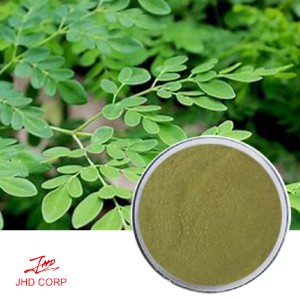Exploring the Potential Benefits of Moringa Leaf Powder for Indigestion
While more research is needed to establish moringa leaf powder as a remedy for indigestion conclusively, its nutritional profile and bioactive compounds suggest it could benefit digestive health.
Moringa oleifera, often referred to as the "drumstick tree" or "miracle tree," has gained significant attention in recent years for its wide range of potential health benefits. Among its many uses, moringa leaf powder is often cited as a natural remedy for digestive issues, including indigestion. But does it truly have a positive effect on this common condition? Let’s delve into the science and traditional uses of moringa to better understand its potential role in alleviating indigestion.
Nutritional Profile of Moringa
Moringa leaves are rich in essential nutrients, including vitamins A, C, and E, calcium, potassium, and iron. They also contain bioactive compounds such as flavonoids, polyphenols, and alkaloids, which are known for their antioxidant and anti-inflammatory properties. These compounds may contribute to moringa's ability to support digestive health.
How Moringa May Help with Indigestion
Indigestion, or dyspepsia, is often caused by factors such as overeating, stress, or underlying gastrointestinal conditions. Symptoms can include bloating, discomfort, and nausea. Organic moringa leaf powder may offer relief through the following mechanisms:

1. Anti-inflammatory Properties:
Chronic inflammation in the digestive tract can exacerbate indigestion. The anti-inflammatory compounds in moringa may help reduce irritation in the stomach lining, promoting a more comfortable digestive process.
2. Rich in Fiber:
Moringa leaves are a natural source of dietary fiber, which can aid in regulating bowel movements and preventing constipation—a common contributor to indigestion.
3. Antioxidant Effects:
Oxidative stress in the gastrointestinal system can lead to discomfort and poor digestion. The antioxidants in moringa may help neutralize free radicals, supporting overall gut health.
4. Alkalizing Effect:
Moringa is considered an alkalizing food, which means it may help balance stomach acidity levels. Excess stomach acid is a frequent cause of indigestion, and consuming moringa could potentially mitigate this issue.
Traditional and Anecdotal Evidence
In traditional medicine systems like Ayurveda, moringa has been used for centuries to address various digestive concerns. It is often consumed as a tea or powder to soothe the stomach and improve digestion. While anecdotal evidence suggests its effectiveness, scientific studies specifically targeting moringa's impact on indigestion are limited.
Considerations and Precautions
Although certified moringa leaf powder is generally considered safe for most people, it is essential to use it in moderation. Excessive consumption may lead to mild side effects such as diarrhea or stomach cramps, which could worsen digestive discomfort. Pregnant women and individuals with existing medical conditions should consult a healthcare professional before incorporating moringa into their diet.















